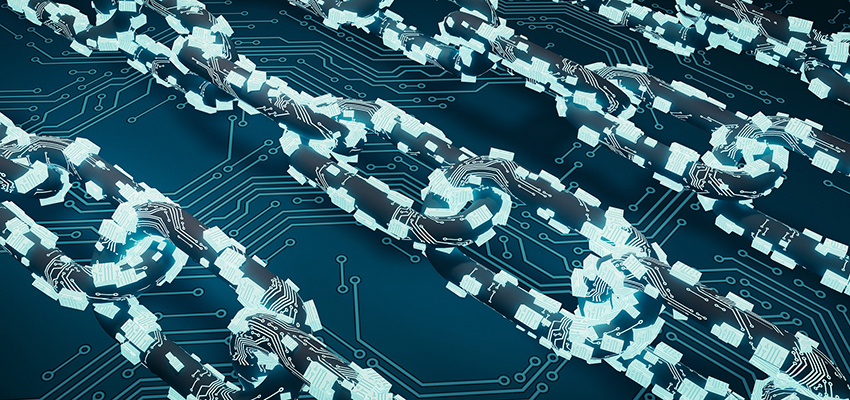Show:
Top Skills Blockchain Developers Need to Succeed in 2025
The role of developers is pivotal as blockchain technology advances. With the user base growing to over 80 million, there’s a strong demand for skilled developers as more sectors consider decentralized solutions.
Achieving success in blockchain goes beyond technical skills; it requires strategic insight into trends and emerging technologies. This guide aims to arm developers with the necessary skills to excel in the dynamic field of blockchain in 2025.

Understanding Blockchain Interoperability
Blockchain interoperability is crucial for tech advancements in the industry. Developers targeting success in 2025 must deeply grasp this concept. It involves various blockchain networks’ ability to exchange information and data fluidly. As blockchains become more interconnected, this capability will set expert developers apart.
Consider the Inter-Blockchain Communication Protocol as an example. It demonstrates the potential of interoperability by facilitating cross-chain data and asset transfers, addressing a major challenge in blockchain utilization: network isolation. Developers need to not only understand “what is blockchain interoperability” but also explore tools like the IBC Protocol. Knowing how it operates will enable developers to build systems that boost functionality, enhance user experiences, and support decentralized collaborations across different chains.
Proficiency in Smart Contract Development
Smart contracts streamline transactions and improve transparency and efficiency without third parties. Developers should hone their skills in creating smart contracts to fully utilize blockchain capabilities.
Technologies such as Solidity and platforms like Ethereum and Hyperledger Fabric dominate smart contract development, but exploring newer platforms can offer added advantages like improved scalability and security. Being proficient in writing and testing smart contracts is key for developers.
Strong Foundation in Cryptography
Cryptography is the cornerstone of blockchain technology. Developers new to this area need a solid grasp of cryptographic methods. It’s crucial to understand how these techniques help secure transactions, confirm identities, and keep sensitive information safe, which are key to creating reliable systems.
Methods such as public-key encryption, hashing techniques, and digital signatures are essential resources for developers to maintain the integrity and privacy of information. For instance, hashing renders data blocks immutable, while digital signatures verify the authenticity of transactions. Developers ought to thoroughly explore these subjects and excel in their implementation within blockchain initiatives. A solid understanding of cryptography enhances the security of a blockchain network and enables developers to investigate new fields such as zero-knowledge proofs and advanced encryption protocols, which are increasingly gaining traction in decentralized platforms.

Knowledge of Consensus Algorithms
Blockchain’s efficiency hinges on consensus algorithms. These protocols are vital for validating and logging transactions. Developers should master various consensus protocols to create networks that are both safe and high-performing.
Traditional strategies like Proof of Work and Proof of Stake are still active, yet new methods are emerging to address issues such as scalability and energy use. We are seeing more of Delegated Proof of Stake, Proof of Authority, and Byzantine Fault Tolerance. Developers skilled in these newer protocols will excel because they can create tailored blockchain solutions for various applications. As more businesses adopt blockchain technology, understanding these algorithms is crucial for developers who need to meet intricate system demands.
Experience with Decentralized Application Development
Decentralized applications enhance how users engage with blockchain, offering better security, openness, and dependability than centralized alternatives. Developers must cultivate expertise in creating dApps to capitalize on the expanding market for decentralized solutions.
Building a dApp requires more than technical acumen. Developers need a comprehensive understanding of user experience design, smart contract integration, and front-end development. Using tools like Truffle, Ganache, and Web3.js is important for efficient development. Knowledge of decentralized storage like IPFS and Filecoin is valuable, especially as various industries turn to decentralized solutions.
Continuous Learning and Adaptability
The blockchain sector changes quickly, with frequent introductions of new tools, protocols, and platforms. For success in 2025, developers need to keep learning and be adaptable.
It’s important for developers to stay updated with trends, engage in blockchain communities, and explore new studies. Upskilling through workshops, online courses, and open-source contributions is crucial. Developers must also be open to learning new programming languages and technologies like quantum computing and artificial intelligence to remain at the forefront.
Final Thoughts
Learning blockchain skills such as interoperability, cryptography, and smart contract and dApp development is crucial. Developers need a broad set of skills to stay ahead.
Blockchain developers can stay relevant and push the boundaries of innovation by continuously learning and adapting to changes in the industry beyond 2025. This ever-evolving sector rewards those dedicated to their professional growth and the advancement of decentralized technologies.

 Return to Previous Page
Return to Previous Page








